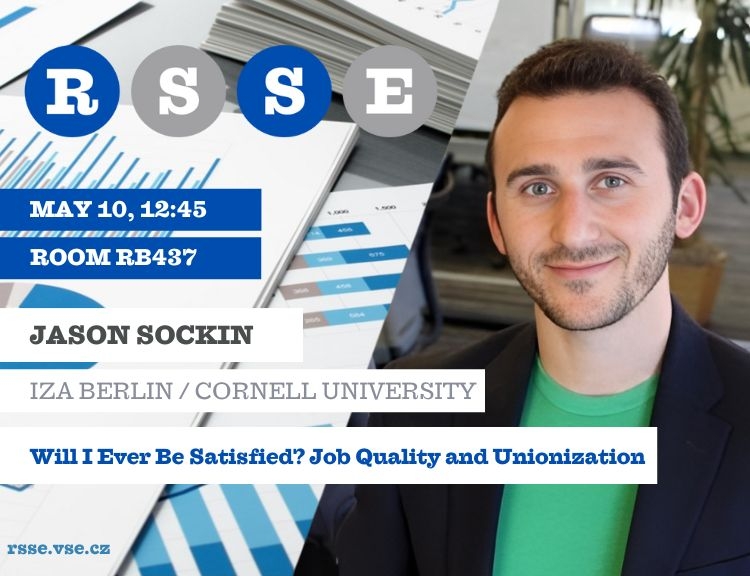Jason Sockin (IZA Berlin) 10.5.2024 FRIDAY
It is our pleasure that Dr. Jason Sockin (IZA Berlin) will present on Friday, May 10, 2024, at 12:45 in room RB437 about the topic “Will I Ever Be Satisfied? Job Quality and Unionization“.
Registration is not required and anyone who would like to attend is warmly invited.
It is also possible to participate online via MS Teams. To get access, please, contact lubomir.cingl@vse.cz.
Abstract: We study the relationship between hard-to-observe aspects of job quality and unionization in the U.S. economy. Establishments where workers report a decline in job quality are more likely to experience a unionization effort, even within the same firm. This dissatisfaction with job quality does not reflect differences or widening gaps in pay, but rather differences and widening gaps in working conditions such as culture, management, and work-life balance. Given the hard-to-observe nature of job quality, union organizing would appear to reflect grassroots movements from within. Even after workers successfully vote to unionize, job quality does not appear to improve. Though the exit-voice hypothesis argues unionization reduces employee turnover, our analysis suggests that the causation may run the other way, as workers who seek to unionize exhibit longer tenure and more dissatisfaction even before filing for representation.
Bio: Jason Sockin is a postdoctoral scholar with IZA in Berlin and will be joining The ILR School at Cornell University as an Assistant Professor in Fall 2024. His research centers on better understanding how the Internet and technology have fundamentally altered the ways in which workers and firms interact in today’s labor market. To this end, his work often incorporates novel datasets from online job boards, such as Glassdoor and Indeed. He has worked as a researcher at the U.S. Treasury, Penn Wharton Budget Model, Glassdoor, The Congressional Budget Office, The White House’s Council of Economic Advisers under the Obama Administration, and The Federal Reserve Board of Governors.
